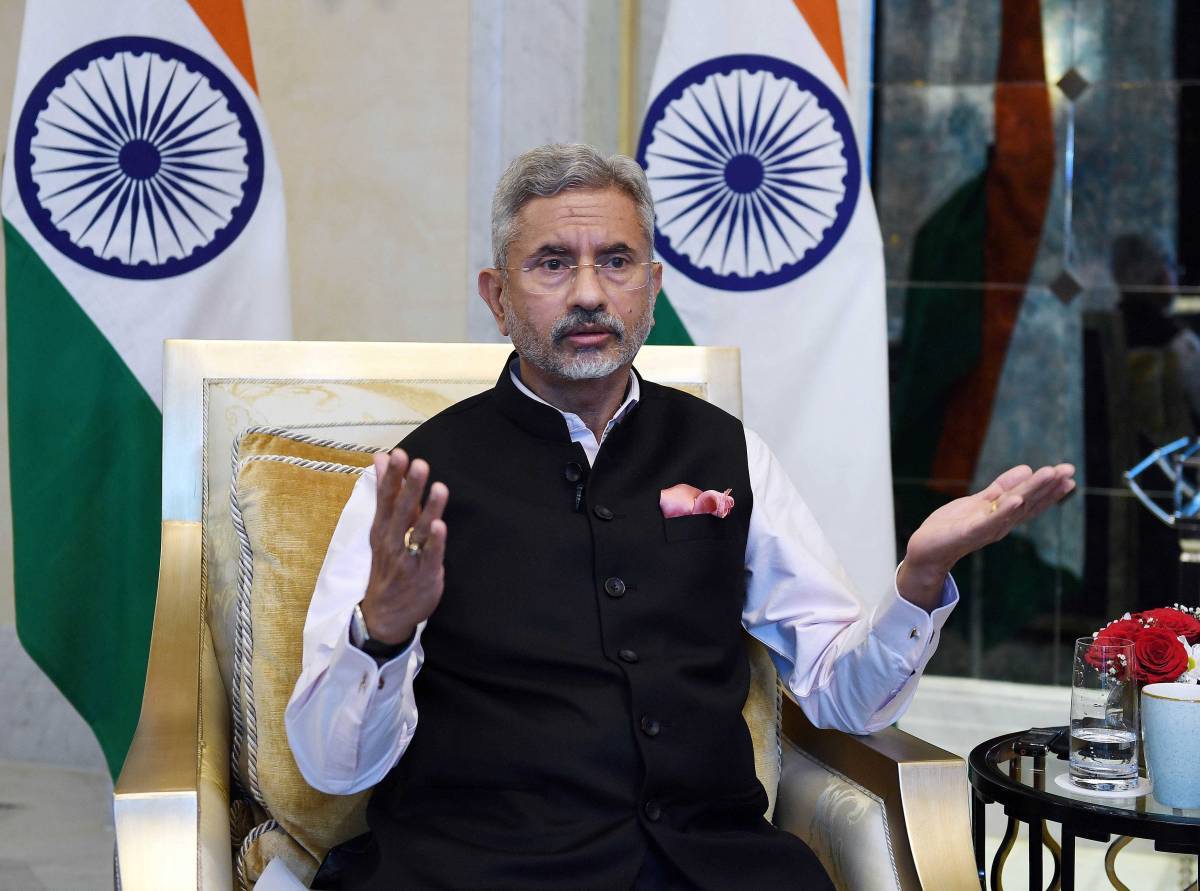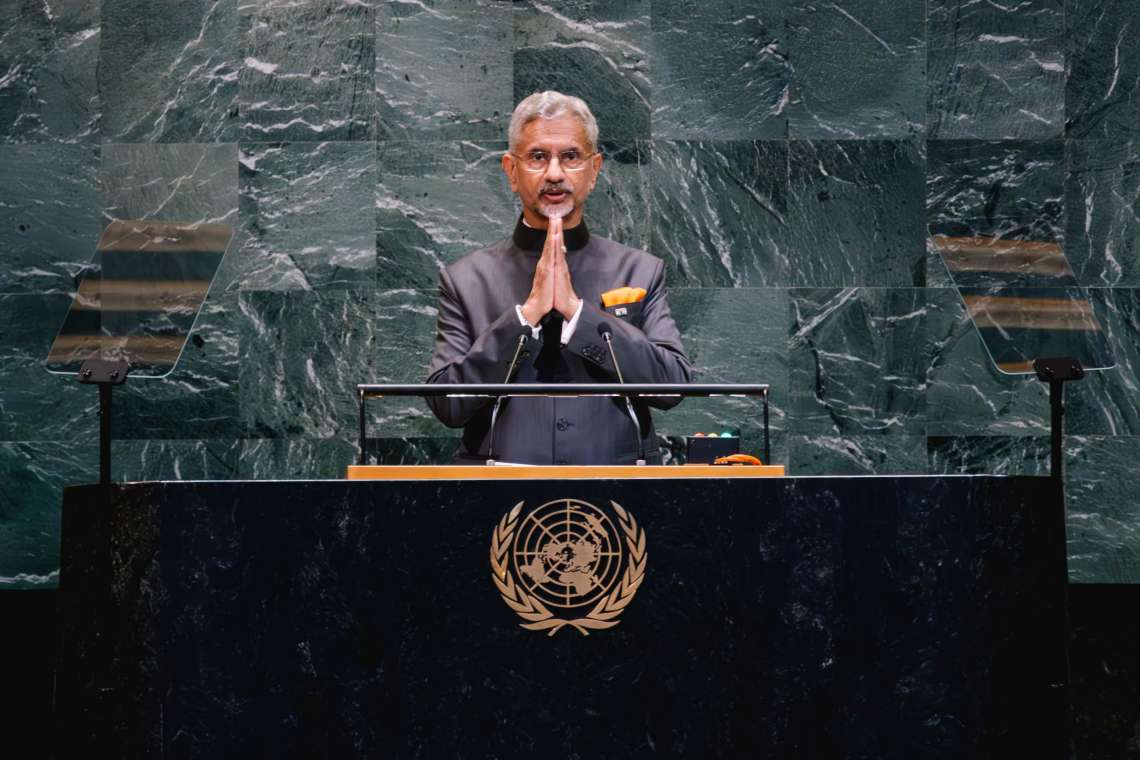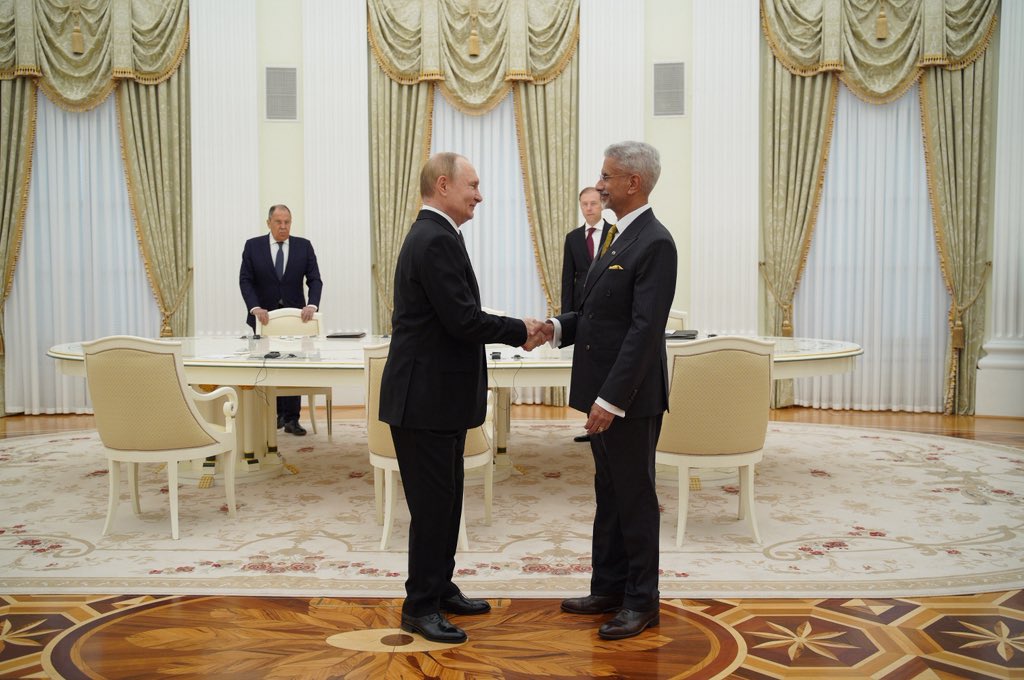Real globalization is more about pandemics, climate change and terrorism. They must constitute the core of diplomatic deliberations. As we saw in 2020, overlooking such challenges comes at a huge cost…writes Dr. S. Jaishankar
We enter 2021, hoping to put the COVID-19 pandemic behind us. While each society has dealt with it uniquely, global diplomacy will nevertheless focus on common concerns and shared lessons. Much of that revolves around the nature of globalization.
Our generation has been conditioned to think of that largely in economic terms. The general sense is one of trade, finance, services, communication, technology and mobility. This expresses the interdependence and interpenetration of our era. What COVID, however, brought out was the deeper indivisibility of our existence.
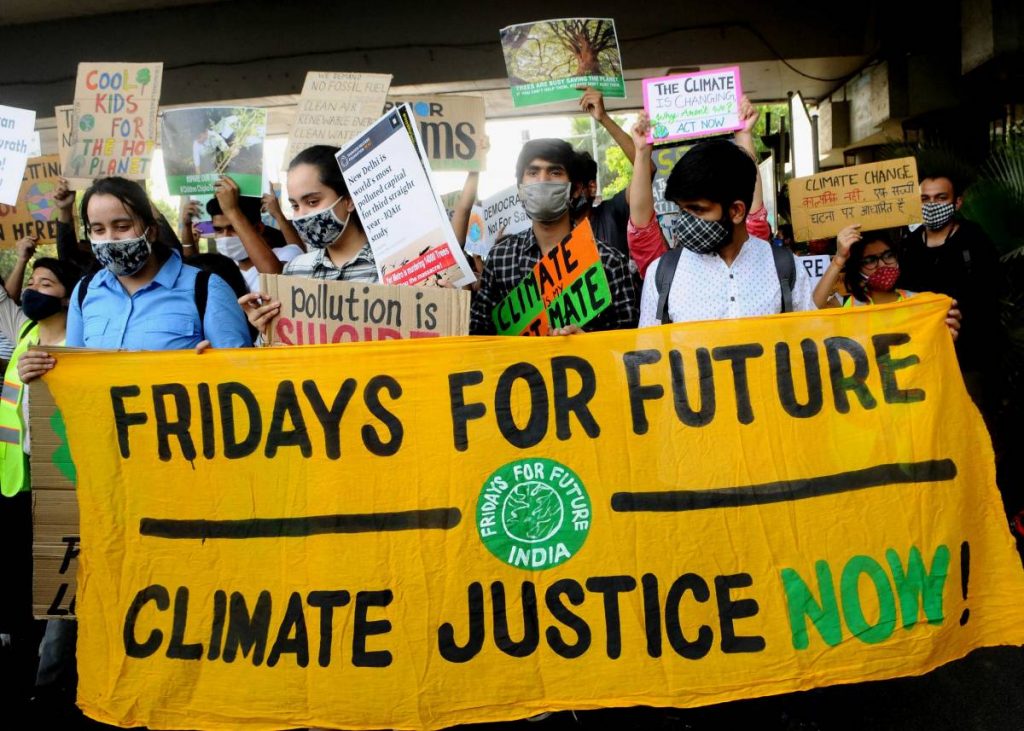
Real globalization is more about pandemics, climate change and terrorism. They must constitute the core of diplomatic deliberations. As we saw in 2020, overlooking such challenges comes at a huge cost.
Despite its many benefits, the world has also seen strong reactions to globalization. Much of that arises from unequal benefits, between and within societies. Regimes and dispensations that are oblivious to such happenings are therefore being challenged. We must ensure that this is not about winners and losers, but about nurturing sustainable communities everywhere.
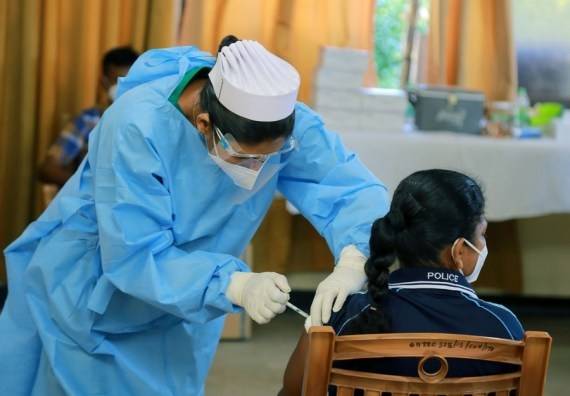
COVID-19 has also redefined our understanding of security. Until now, nations thought largely in military, intelligence, economic, and perhaps, cultural terms. Today, they will not only assign greater weight to health security but increasingly worry about trusted and resilient supply chains. The stresses of the COVID-19 era brought out the fragility of our current situation. Additional engines of growth are needed to de-risk the global economy, as indeed is more transparency and market-viability.
Multilateral institutions have not come out well from this experience. Quite apart from controversies surrounding them, there was not even a pretense of a collective response to the most serious global crisis since 1945. This is cause for serious introspection. Reforming multilateralism is essential to creating effective solutions.
Fashioning a robust response to the COVID-19 challenge is set to dominate global diplomacy in 2021. In its own way, India has set an example. That it has done by defying prophets of doom and creating the health wherewithal to minimize its fatality rate and maximize its recovery rate. An international comparison of these numbers tells its own story. Not just that, India also stepped forward as the pharmacy of the world, supplying medicines to more than 150 countries, many as grants.

As our nation embarks on a mass vaccination effort, Prime Minister Narendra Modi’s assurance that it would help make vaccines accessible and affordable to the world is already being implemented. The first consignments of Made in India vaccines have reached not only our neighbors like Bhutan, Maldives, Bangladesh, Nepal, Mauritius, Seychelles and Sri Lanka but partners far beyond like Brazil and Morocco.
Other key global challenges today deserve similar attention. As a central participant in reaching the Paris agreement, India has stood firm with regard to combating climate change. Its renewable energy targets have multiplied, its forest cover has grown, its bio-diversity has expanded and its focus on water utilization has increased. Practices honed at home are now applied to its development partnerships in Africa and elsewhere. By example and energy, Indian diplomacy is leading the way, including through the International Solar Alliance and the Coalition for Disaster Resilient Infrastructure initiatives.
The challenge of countering terrorism and radicalization is also a formidable one. As a society, long subjected to cross-border terrorist attacks, India has been active in enhancing global awareness and encouraging coordinated action. It will be a major focus in India’s diplomacy as a non-permanent member of the Security Council and in forums like FATF and G20.
Among the takeaways from the COVID-19 experience has been the power of the digital domain. Whether it was contact tracing or the provision of financial and food support, India’s digital focus after 2014 has yielded impressive results. The “work from anywhere” practice was as strongly enhanced by COVID-19 as the “study from home” one. All these will help expand the toolkit of India’s development programs abroad and assist the recovery of many partners.
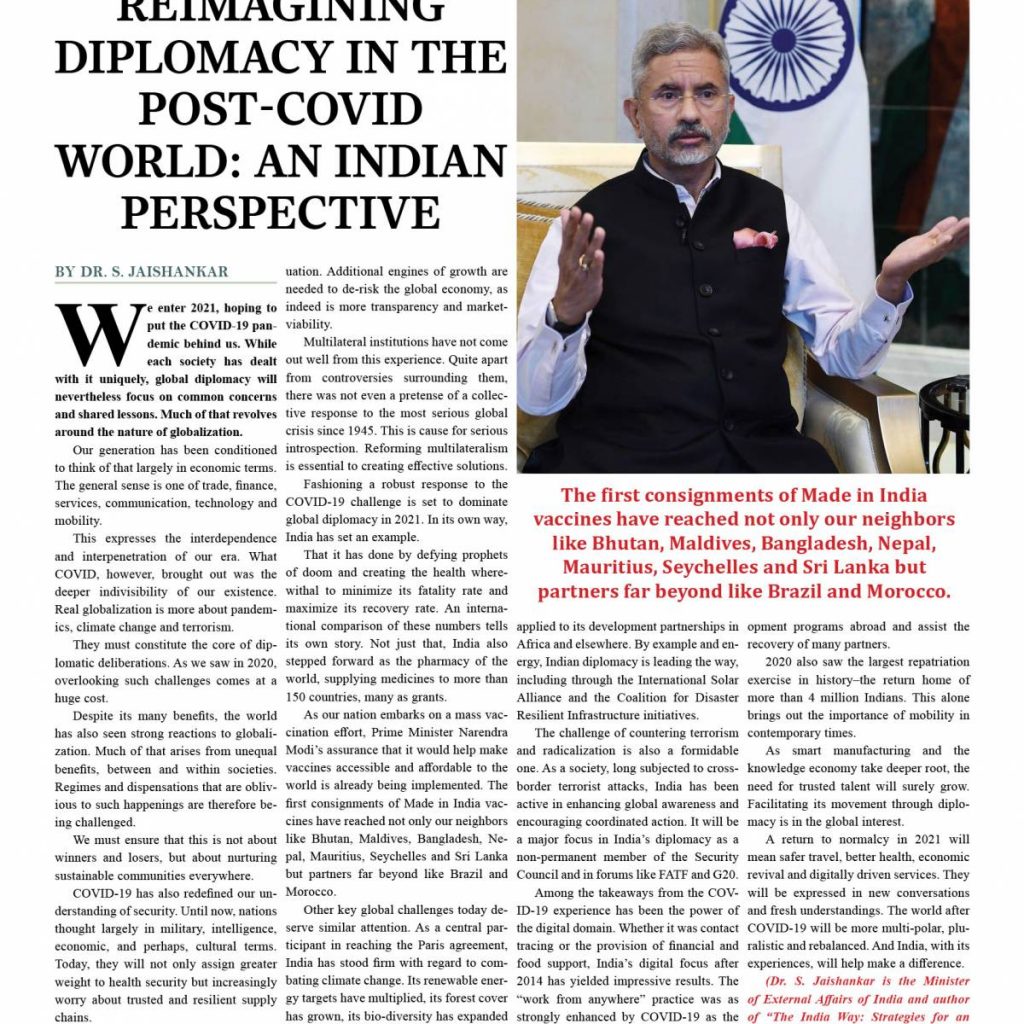
2020 also saw the largest repatriation exercise in history–the return home of more than 4 million Indians. This alone brings out the importance of mobility in contemporary times. As smart manufacturing and the knowledge economy take deeper root, the need for trusted talent will surely grow. Facilitating its movement through diplomacy is in the global interest.
A return to normalcy in 2021 will mean safer travel, better health, economic revival and digitally driven services. They will be expressed in new conversations and fresh understandings. The world after COVID-19 will be more multi-polar, pluralistic and rebalanced. And India, with its experiences, will help make a difference.
(Dr. S. Jaishankar is the Minister of External Affairs of India and author of “The India Way: Strategies for an Uncertain World.” The views expressed in this article are the writer’s own.)
Also Read-Jaishankar, Pompeo discuss COVID-19 developments
Read More-Will raise Oxford University racism issue when required: Jaishankar


